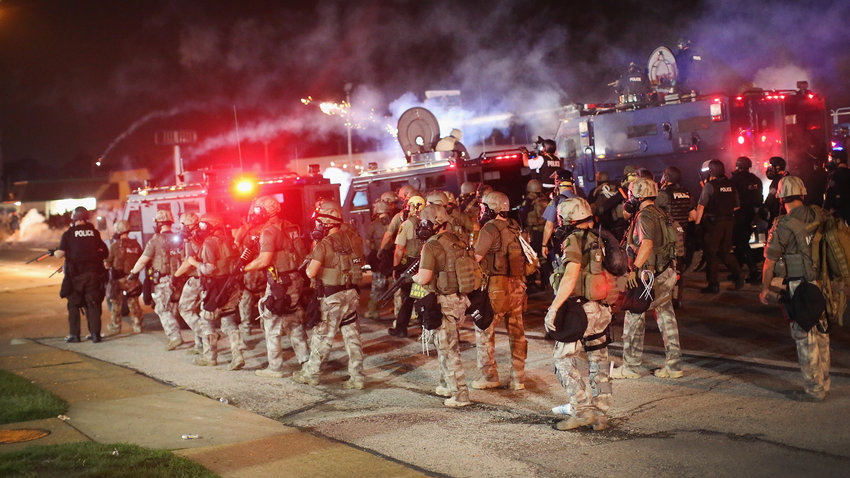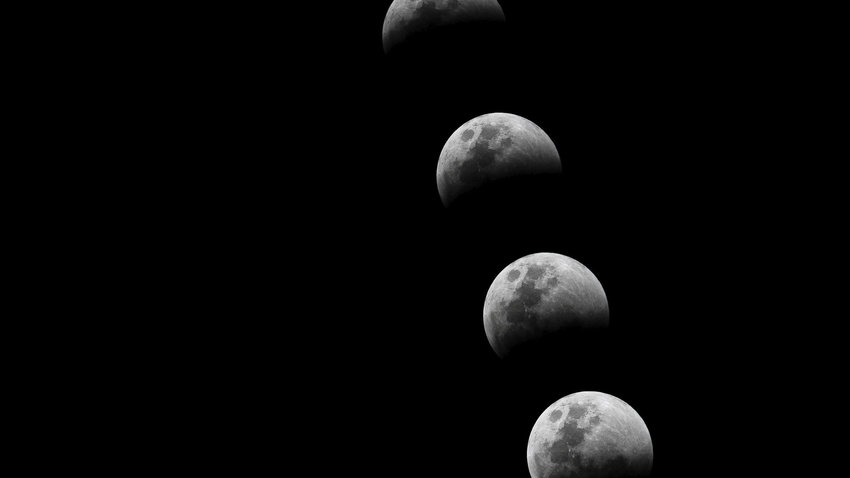The ill-fated AirAsia flight on the eve of this New Year—could it be the story of this civilization? Flying high and unperturbed . . . until stricken by a raging storm . . . and all the desperate maneuvers notwithstanding the innocent go down? Not unlike the brutal Paris terrorist attack Wednesday on the unsuspecting editorial team of the satirical paper Charlie Hebdo. Many recognize that resilient though this civilization is, there will come one day the crisis that will break its back. Not unlike the dark narrative of Jacob, cruising high through his life, the accoutrements of success obvious, until in one dark midnight the crisis strikes that breaks the man. And yet out of his shattering, the maimed patriarch is renamed the Prince who prevails with God and history is changed. The Great Controversy connects the dots from Jacob’s crisis to our generation in this urgent call: The season of distress and anguish before us [earth’s impending crisis] will require a faith that can endure weariness, delay, and hunger—a faith that will not faint though severely tried. . . . Jacob prevailed because he was persevering and determined. His victory is an evidence of the power of importunate prayer. All who will lay hold of God’s promises, as he did, and be as earnest and persevering as he was, will succeed as he succeeded. Those who are unwilling to deny self, to agonize before God, to pray long and earnestly for His blessing, will not obtain it. Wrestling with God—how few know what it is! How few have ever had their souls drawn out after God with intensity of desire until every power is on the stretch. When waves of despair which no language can express sweep over the suppliant, how few cling with unyielding faith to the promises of God. (621) In this dawning of the New Year I wonder—am I, are we like Jacob, cruising high and detecting the need of no major spiritual repair—after all, look at the successes we enjoy? How willing am I to go to the mat with God in a prayer that will not let go? Tuesday evening thirty or fourty of us gathered—some administrators, faculty and staff—to intercede for a colleague, a friend in desperate need. We noted the difference Melody Mason (in her new book Daring to Ask for More) describes between praying for (for our meals, our safety, our classes, our friends) and praying through (praying with persevering faith until our prayers are answered, until we experience victory, until God wins in that crisis, whatever it may be). These words from Great Controversy are clearly a call for you and me to move from praying for to praying through. “Those who are unwilling to deny self, to agonize before God, to pray long and earnestly for His blessing, will not obtain it.” That’s a hardly a threat. It simply exposes the need of our hearts to lock in rather than to keep flitting on. Especially in this year promising more crises unpredicted, unforeseen—Heaven urgently calls for us to join a generation that will prevail, persevere in prayer: pleading for lost friends or family members who must come to the Savior now, begging for courageous faith and a bold spirit to loosen our tongues in witness for Jesus, petitioning God to direct our career choices, to revive our schools, our marriages our churches. How can I pray that way? Why not print off this Great Controversy quotation, keep it by your place of worship and prayer, and join me in earnestly laying hold of His promises (e.g., Psalm 50:15, Zechariah 12:10, Matthew 18:19,20; Isaiah 43:19/44:3). Pray through until God answers. Need help? Join me in reading Melody Mason’s new book—it is already changing the way I pray (http://www.amazon.com/s/ref=nb_sb_noss?url=search-alias%3Daps&field-keywords=Melody%20Mason%20Daring%20to%20Ask%20for%20More). Why wait until the next storm? Isn’t it time now?
Pastors' Blog
By Pioneer Pastors

“Not even J. R. R. Tolkien could dream up rings as precious as these.” So began the story of the Salvation Army red kettle outside Boston’s North Station a couple weeks ago. The ringer hadn’t noticed that one of the passers-by had dropped into the kettle a letter with two objects tucked inside. When the charity emptied the kettle late that night, they found the letter, from a widow. Recalling her late husband as an especially giving soul (particularly during the holidays), the anonymous widow donated both her diamond engagement ring and wedding band. The note asked that the two rings be sold and the proceeds used to buy toys for poor children. “‘I’m hoping there’s someone out there who made lots of money this year and will buy the ring for 10 times its worth. After all, there’s no price on love or the sentimental value of this ring. But money will help the kids,” her note read. Massachusetts Salvation Army Major David Davis later reported that the diamond ring itself was valued at $1,850. In keeping with the widow’s wishes, the Salvation Army spread the word about the widow’s gift and her desire. Soon multiple offers were made for the rings. But the highest offer actually came from a former Salvation Army ringer. In fact she offered $21,000 for the two rings, more than ten times their worth! But as the Associated Press reported: “This heartwarming Christmas story gets even better: The anonymous woman redeeming the rings is also a widow, and she wants to return them to the woman who originally donated them” (South Bend Tribune 12-16-14). Why so generous an offer from the second widow? “I want to be involved in this because it’s about the spirit of Christmas, the spirit of giving. My wish is that the rings can be returned to this woman who gave them up in memory of her husband for the sake of the children at Christmas.” As church official Davis put it, “One expression of love has inspired another grand gesture to help those in need during the holiday season. Because of these two amazing individuals, our Salvation Army officers, staff and individuals will be able to extend our outreach to the many families and children in need. We are dedicated to fulfilling the sentiment behind these two heartfelt donations.” Talk about a feel-good story for Christmas! Two widows, two sacrificial gifts, all because of one Child long ago who made the greatest sacrifice of all. Somewhere it is written, “Freely you have received—freely give.” They are the words of the Child grown up to be Savior and Lord of the rings and every other gift that shall be given in His name.

Looks like everybody’s in the giving mood this Christmas. Two days before the deadline this week, Congress voted to approve a $1.1 trillion spending bill to avoid another disconcerting government shut-down. “Deck the Halls.” A few billion here, a few billion there, and suddenly with the proverbial speed of jolly old St. Nick’s “wink of his eye and a twist of his head” $1.1 trillion ends up on our national credit card. Not that we Americans should be surprised. The National Retail Federation calculates that by the time Christmas arrives, shopping Americans will have spent $616.9 billion (excluding autos, gas, and restaurant sales)—up 4.1% from last year. “Deck the Halls” again. It’s astounding how the numbers add up here in the wealthiest nation on earth, isn’t it? After all, our Founding Fathers declared “the pursuit of happiness” our inalienable right. And if happiness can be bought, we’ve got to be the happiest people on earth. But, of course, we’re not. Google “happiest countries in the world,” and you’ll discover a basketful of global surveys in search of the answer. But no matter which calculus you select, the embarrassing reality is that the U.S. doesn’t score high on any of them. (Although apparently Forbes magazine didn’t get the memo, since on its website it touts the happiest and least happy nations on earth solely on the basis of national wealth.) This is hardly a plea for poverty. But in the midst of this hyper-frenzied buying season, it is a quiet appeal to reflect on the values that matter most to us. “Thanks be to God for His indescribable gift!” (2 Corinthians 9:15). How else shall we describe that Gift than “indescribable”? A Child in a foul stable, Where the beasts feed and foam; Only where He was homeless Are you and I at home. . . (G. K. Chesterton, The House of Christmas) We the homeless at last at home, eternal Home, in that Child. It is that calculus that declares this Gift “indescribable.” And it is that calculus that frees us from gnawing hunger for more. How? By consecrating the first moments of the day with a fresh prayer of gratitude “for His indescribable gift,” we discover that culture’s incessant clamor for more really does “grow strangely dim, in the light of His glory and grace.” For “only where He was homeless are you and I at home.”

The national conversation has been boisterous and divided in the aftermath of the grand jury findings announced in Ferguson, Missouri, last week. Ever since the shooting death of black teenager Michael Brown by white police officer Darren Wilson last August, the reaction of Americans has generally split along racial lines. So it was over the death of Trayvon Martin nearly three years ago, as well as over the verdict in the O. J. Simpson trial two decades ago. The racial divide in this country is undeniable, and the election of the first Black American as President of the United States has not diminished our division. So what position is the church of Christ to embrace in the midst of so polarized a society? Where should the disciples of Jesus stand? If Christ’s Sermon on the Mount is a template for discipleship, then His words are clear: The followers of Jesus will be identified by their poverty of spirit, their mourning with those who suffer, their radical humility, their hunger and thirst for justice and righteousness, their mercy, and their purity of heart (see Matthew 5:5-12). That seems clear enough. But perhaps most compelling of all is the beatitude, “Blessed are the peacemakers” (v 9). In some very tangible and realizable sense, the follower of Christ is to move through society—according to this admonition of the Master—as one who continually seeks to make peace, to broker it, to cling to the fragile hope that it may even yet take root and blossom in the raw earth of our enmities. “Blessed are the peacemakers” is not the abolition of justice or the absolution of injustice. But it is the studied effort to resist the polarization of side-taking; it is a bold meekness that chooses instead to conciliate two hostile camps. In a sense it is the effort to be like Jesus. Of that effort John Howard Yoder observes in his seminal study The Politics of Jesus: “There is thus one realm in which the concept of imitation holds—but there it holds in every strand in the New Testament literature and all the more strikingly by virtue of the absence of parallels in other realms: this is at the point of the concrete social meaning of the cross in its relation to enmity and power. Servanthood replaces dominion, forgiveness absorbs hostility. Thus—and only thus—are we bound by New Testament thought to ‘be like Jesus’” (134). “Blessed are the peacemakers,” who like their Master, speak truth to power and forgiveness to enmity. “. . . for they shall be called the children of God.” The very children desperately needed in that town in Missouri and this village in Michigan this Christmas. What else will heal the fractured divide we know all too well there and here—if not the One at whose midnight coming the angels once sang, “. . . and on earth, peace, good will, to all”?

The sellout crowd at Xavier University’s 10,000-seat arena was on its feet a few days ago. The object of their ovation, a 19 year old freshman on Division-III’s Mount St. Joseph college basketball team. But what’s so special about a young woman scoring a basket on a left-handed layup in her first college basketball game? After all, it’s been done a thousand times before. But the difference for Lauren Hill is that she has an inoperable brain tumor and just months to live. Lauren’s battle against pediatric cancer somehow jumped the wall between private struggle and national outpouring. Determined to make a difference for children who one day would also contract cancer, Lauren began a fund-raising effort some time ago for research. Because her tumor affects her coordination, righthander Lauren had learn to shoot with her left hand. So she launched an online layup challenge “that involves spinning around five times and shooting a layup with the non-dominant hand” (South Bend Tribune 11-3-14). Thanks to social media, word of Lauren’s challenge spread beyond her small school outside Cincinnati to the nation, and #Layup4Lauren fundraising mushroomed across the country, with donations pouring into the Cure Starts Now Foundation. Her disease continued to worsen over the summer and into this fall. Aware of the urgency of Lauren’s condition, the NCAA voted to move up by two weeks the Mount St. Joseph home opener. And what an opener it was for this teenager from Lawrenceburg, Indiana. There to cheer her on were football players from the Cincinnati Bengals, a roster of WNBA stars, and a packed out arena. Removing her sunglasses and headphones (which she wears because of acute sensitivity caused by the tumor), Lauren took her place in the starting five. You can imagine the roar when Lauren spun away for the first basket of the game, a left-handed layup. And as it turned out, the final basket of the game was hers as well, a difficult (for her) right-handed layup with 26.5 seconds left in the game, a game she and her team won. But in between the two baskets Lauren Hill sat out much of the game on the bench, physically depleted but basking in the realization that she had realized her dream to play college basketball. In closing ceremonies the U.S. Basketball Writers Association bestowed on Lauren its Pat Summit most courageous award (normally awarded during the Final Four). To the crowd Lauren Hill declared, “Today has been the best day I’ve ever had.” And then she promised, “We’re gonna fight this.” “O give thanks to the Lord, for He is good and His mercy endures forever” (Psalm 106:1). Lauren’s story reminds us of life’s two undeniable realities: (1) the only day we have to live is Today, so let us live it to the full; and (2) there is always reason to be grateful. “I complained to God I had no shoes, until I met a man who had no feet.” This Thanksgiving is there one gift from God that summons the deepest gratitude we can muster? “The thought that Christ died to obtain for us the gift of everlasting life, is enough to call forth from our hearts the most sincere and fervent gratitude, and from our lips the most enthusiastic praise” (Sons and Daughters of God 238). Then for Lauren Hill and for us, this Thanksgiving will be the most blessed of all.

Eighty years ago two wealthy friends, New York banker Henry Graves Jr and Ohio automaker James Packard, both watch collectors, were in a friendly race to see who could come up with the world’s most complicated watch. But Graves clearly won the bet when he commissioned Swiss watchmaker Patek Phillipe to design what became known as the Supercomplication—a 1.5 inch thick gold pocket watch that took eight years to craft. Complicated? Are you kidding! “Among the watch’s features are a double face, perpetual calendar, phases of the moon, a chronograph that can time two simultaneous events, Westminster chimes, and indications for the time of sunset and sunrise and the night sky over New York’s Central Park as seen from Graves’ home on Fifth Avenue” (http://nypost.com/2014/11/11/pocket-watch-clocks-in-at-nearly-24m-at-auction/). Cost to Graves—$13,000 (no small sum in 1933). This Tuesday the Supercomplication went on the auction block at Sotheby’s in Geneva. For fifteen dramatic minutes five bidders competed to possess it. When the dust settled, the Supercomplication became the most expensive time piece in history, sold to an anonymous bidder for $23,983,140. At that price you can be safe in predicting the new owner won’t be carrying it around in his pocket for show and tell! Supercomplication. Not an inappropriate name for a time-keeping device. After all, what is more complicated than our human attempt to “keep time?” Nobody has yet been able to keep very much of it, have they? Supercomplicated time is how some regard an ancient prophecy in Daniel 8:14. “Two-thousand three-hundred evenings and mornings,” the Hebrew reads. A slice of prophetic time that scholars calculate to span from ancient Babylon to our own age of history. And when the timepiece of divine prophecy struck the prophesied hour, these scholars are certain the human race was ushered into the divine endgame strategy of “cleansing the sanctuary,” a celestial judgment (see Daniel 7:10) in which the dark records of the Rebel’s long war against the Kingdom will be eventually purged. Thus Daniel’s cryptic prophecy lends compelling to Revelation’s declaration that the hour of God’s judgment has come (Revelation 14:7). Which means there is nothing complicated about the urgent intent of Holy Scripture to remind its third millennial readers we live in the predicted endtime of moral cleansing. Business as usual long ago vanished. “Now is the time of God’s favor, now is the day of salvation” (2 Corinthians 6:2). It is cleansing time. But is that so complicated a thought? Didn’t the death of Christ on the cross open a fountain of spiritual cleansing for all who seek His purifying grace (Zechariah 12:10/13:1)? Hasn’t the moral cleansing of His children ever been God’s passionate vision and promise? And for a generation living at a time when more and more believe the sudden demise of earth as we know it is a credible possibility, is it so complicated to believe it is imperative we take seriously Christ’s offer of “a special work of purification, of putting away of sin” NOW? “Galaxy Three.” Watch the final three episodes (archived at this website). The King, the Rebel, the loyalists, the war. And you and me. Because it is no longer “long ago and far away.” The endgame has arrived. It really is cleansing time.

I don’t mind admitting that putting our little just-turned-one granddaughter Ella on a plane this past Sunday wasn’t just about tears, but also about an ache in the heart that I really hadn’t expected. After all, Karen and I knew this day would be coming sometime. Having our son Kirk and Chelsea just three miles up the road from us these past few years has been a parents’ delightful bonus. But when Ella was born a year ago, we were joyfully ushered into the glorious dimension of grandparenthood. And what’s not to like about having a precious little red-head granddaughter at your home nearly every week, while before your wondering eyes she grows and blossoms! To smother with love and kisses and prayers—isn’t that why God invented grandparents? So a few weeks ago, when Kirk accepted the invitation to head up physician recruiting at the 450 bed Salem Hospital (Oregon), the countdown to the inevitable began. But hey, isn’t this what happens to everybody? I mean—life goes on—families can’t stay close by forever—so not to worry—there’s always Skype. If I had even subconsciously entertained the slightest notion of such thinking, trust me—it all vanished when it came time to say Good-bye Sunday afternoon at O’Hare. When we pulled back into our driveway that evening and climbed the stairs to the living room, Ella’s blanket was still on the floor, covered with her kaleidoscope of toys that were her favorites when she came to visit Papa and Grammie, and her empty high chair nearby—all of it corroborating evidence that the tears and the ache had not been imagined. So where does it come from, this subterranean welling up of such poignant and too many times painful emotion when we’re separated from those we love? If only we didn’t become so attached to one another, there wouldn’t have to be tears and an ache inside, would there? “‘I grieve for you, Jonathan my brother; you were very dear to me’” (2 Samuel 1:26). The truth is, such deep emotion is both transgenerational and transcultural. It is the human birthright, the embedded DNA of the divine Creator Himself. God is a Being questing for friends, in the words of Clark Rowland. Being fashioned in His image means that our own kaleidoscope of emotions can be traced back (or up) to the Eternal heart. The two-word brush-stroke on the canvass of Lazarus’ death and resurrection still tells the truth about God: “Jesus wept” (John 11:35). Not only over the separation of death. But over the separation of rejection, loneliness, unrequited love and distance. When our hearts ache, it is corroborating evidence that the Heart that called us into existence does, too. “In all our affliction, He is afflicted” (Isaiah 63:9). And because He is, the very presence of relational pain is itself the union of the divine with the human. Tears and heartache—no matter their cause—flow from the sacred capacity to love so deeply it can actually hurt. Just like grandparents. Just like God.

The story won’t go away, will it? Because this killer virus doesn’t seem to go away. Now Dallas is jittery all over again with the announcement that a second nurse who treated the deceased Liberian Ebola-infected patient is herself infected with Ebola. And now a whole new network of family, neighbors, associates must be staked out to determine if this infected nurse accidently infected one of them as well. Add to these concerns the World Health Organization’s announcement this week that the infection rate of Ebola in West Africa will accelerate in two months to as many as 10,000 new cases a week. How does the global community build a fire-wall around that number? It doesn’t take an epidemiologist to recognize that just a handful of breaches in quarantine efforts—just a few infected humans slipping across a border or two into a previously uncontaminated region or country—could conceivably turn this regional plague into a trans-African crisis of unimagined proportions. And then how long would the rest of the world remain untouched? Just the typical media hype? I’m not so sure anymore. I read a report this week from the Center for Infectious Disease Research and Policy (part of the Academic Health Center at the University of Minnesota) stating: “We believe there is scientific and epidemiologic evidence that Ebola virus has the potential to be transmitted via infectious aerosol particles both near and at a distance from infected patients”—the implication being that “healthcare workers should be wearing respirators, not facemasks” (http://www.cidrap.umn.edu/news-perspective/2014/09/commentary-health-workers-need-optimal-respiratory-protection-ebola). I.e., the virus may be transmitted in the air surrounding an infected victim. If those CIDRAP concerns are valid, then obviously the spread of Ebola virus is no longer limited to contact with bodily fluids. But doesn’t God promise, “No evil shall befall you, nor shall any plague come near your dwelling” (Psalm 91:10)? The Adventist Review reported this week that Ebola has killed 16 Adventists in West Africa. The truth is, divine protection was never intended to be a permanent immune shield for the ills and evils of this planet. Then should we be worried? No. We should be concerned, deeply concerned both for the plight of the inhabitants of West Africa and for a world where “pestilences” will abound until Christ returns (Matthew 24:7). And where we can, let us act on our compassion in humanitarian ways that can help alleviate human suffering. We must respond like Jesus. (Go to Adventist Frontier Missions—www.afmonline.org—for ways you can respond.) In the meantime let us not dismiss too quickly the disequilibrium Ebola has already injected into global consciousness. Should this epidemic jump the firewall, life on this planet will be radically altered. And the difficulty of communicating God’s last appeal “to every nation, tribe, tongue and people” will be significantly ramped up. Jesus’ description of the global psyche when He returns may not be so far off—“men’s hearts failing them from fear” (Luke 21:26). So with hope and an urgency borne of compassion let us go to our neighbors and nations with the announcement that the Healer of the human family is coming soon. “Turn to Me and be saved, all you ends of the earth” (Isaiah 45:22).

What a pre-dawn moment of glory! Did you remember to check out the total lunar eclipse Wednesday morning before sunrise? When I stepped out under the stars, the heavens were literally ablaze in white pinpoint. With no ambient light from the eclipsing moon and not a cloud above, it truly was a spectacular vista high overhead. And as the moon slowly bore more and more of earth’s shadow (or, as the earth crossed more and more into the blazing light of the unrisen sun), the moon’s white turned to a dull orange, not unlike a frosted incandescent bulb with a fading element inside of it. Some see a coppery red during a lunar eclipse (thus the expression “blood moon”), but it certainly appeared orange to me. The reason for any color at all is (as www.space.com explains it) because of the fiery ring that encircles the earth when it fully blocks the sun. Apparently, if we were standing on the moon during this eclipse, the view of earth would be even more specular than what we saw of the moon—our home planet pitch black except for that blazing ring around its edge. When I came back in from the breathtaking display, my mind was drawn to a collage of ancient exclamations. “When I consider your heavens, the work of your fingers, the moon and the stars, which you have set in place, what is mankind that you are mindful of them, human beings that you care for them? . . . The heavens declare the glory of God; the skies proclaim the work of his hands. Day after day they pour forth speech; night after night they reveal knowledge. They have no speech . . . yet their voice goes out . . . . [For] by the word of the LORD the heavens were made, their starry host by the breath of his mouth” (Psalms 8:3,4; 19:1-4; 33:6). How truly puny and insignificant the human creation is when set against a trillion galaxies and a septillion (a 1 followed by 24 zeroes) stars! And yet—wonder of wonders—the Creator of them all stripped aside His majesty, descended into the womb of an earthling, and from there entered our consciousness, “God with us.” Who can comprehend such mystery? Ian Pitt-Watson was right: “Some things are loved because they are worthy; some things are worthy because they are loved.” No wonder the night sky summons our adoration. For in the path of moon and stars, we trace His love.

Apparently it was quite a heated grilling last Tuesday at the House Oversight Committee’s Q & A with Julia Pierson, director of the Secret Service. Two recent lapses in White House and presidential security have certainly raised a non-partisan ruckus in Congress. And perhaps justifiably so. On September 16 a knife-carrying intruder leaped the White House fence and raced past guards, all the way into the East Room of the White House, an unprecedented breach of security. Then the nation learned that three days previous President Obama, in a visit to the Centers for Disease Control and Prevention in Atlanta, had ridden up an elevator with an armed federal contractor. Turns out that gentleman had three convictions for assault and battery on his record. It probably didn’t help his case that he stood there in the elevator videoing the President as they ascended! Thus to note that Julia Pierson’s appearance before the Congressional committee was adversarial is perhaps an understatement. “What were you people in the Secret Service thinking?” Etc. To which Ms. Pierson asserted, “The president is safe today.” Well. Let’s face it—security is a big deal in anybody’s book these days. Commoners like you and me have reason to pause many times in the course of a week over concern about our personal safety and security. We have a new family in our neighborhood that owns a pet pit bull. It may be the friendliest pit bull on earth, but as I run by the house each morning I keep a wary eye for any sign of a dog on the loose! No Secret Service details are assigned to us. But take heart—we don’t go out into this dangerous world unprotected. “The angel of the LORD encamps around those who fear him, and he delivers them” (Psalm 34:7). That’s not only a statement of fact—it is also a divine promise! “A guardian angel is appointed to every follower of Christ. These heavenly watchers shield the righteous from the power of the wicked one.” And because this is a university, consider the following sentence: “ . . . it is their work to guard the youth. . . . Ten thousand times ten thousand and thousands of thousands of angels minister to the youth” (The Truth about Angels 14, 19). And besides, if one angel felled an entire battalion of Roman warriors at the resurrection of Jesus, you and I are hardly getting short-changed to have one angel as our night and day guardian! One of my favorite songs was written and sung by Fernando Ortega: “Jesus, King of Angels, Heaven’s light/Hold my hand and keep through this night./Let no evil come into my dreams,/Light of Heaven, keep me in your peace.” Yes, we have the angels. But best all, we have the King of Angels, too.
- ‹ previous
- 31 of 62
- next ›
